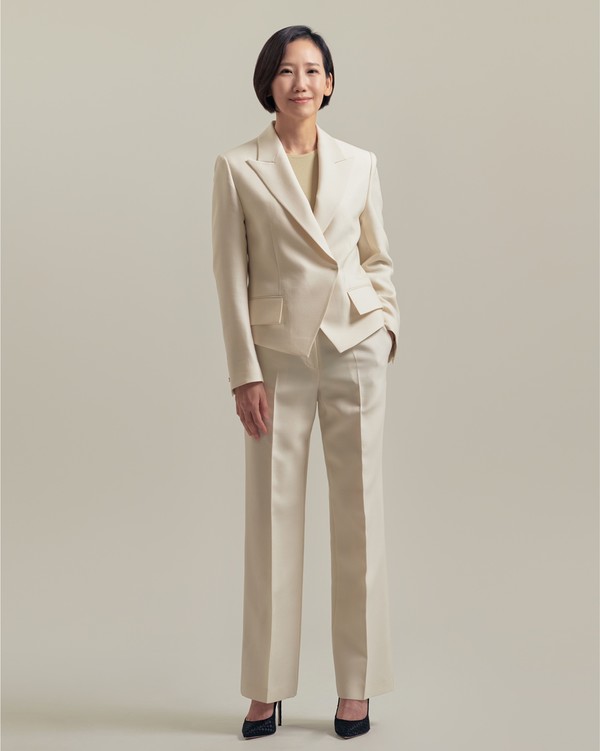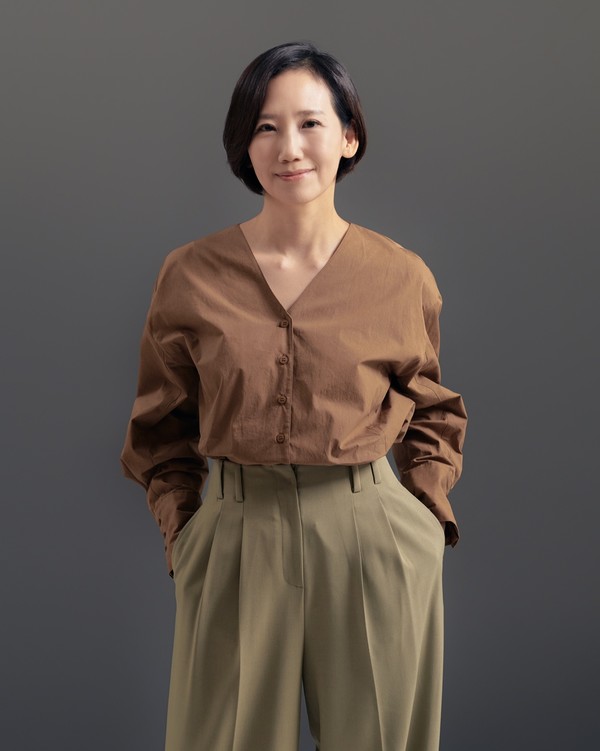Professor Kim Ji-yoon’s different professions

IT IS often hard for college students to envision the lives of their professors beyond their roles as educators and researchers. However, students who take Professor Kim Ji-yoon’s (Class of ’90, Dept. of Political Science & Int. Studies) classes are in for a welcome surprise. While Professor Kim delivers her in-depth insights on U.S. politics and elections in classes, some students might recognize her from her YouTube channel or from her broadcasts on Korean media. In an exclusive interview with The Yonsei Annals, Professor Kim shares her stories of a multifarious life as a professor, TV broadcaster, and YouTuber.
Annals: You have a rich background in the study of political science, from pursuing undergraduate studies at Yonsei University to graduate studies at the University of California, Berkeley (UC Berkeley) and the Massachusetts Institute of Technology (MIT). What do you think is the appeal of political science?
Kim: My major in graduate school was U.S. Politics; U.S. elections specifically are a fun subject for me because I think that the electoral process can reveal complex things about human nature. Moreover, the United States has a very different electoral system and political dynamics than Korea. Since I do not support a particular party or a candidate, I always get excited when the U.S. election approaches as I can just enjoy watching how it unfolds.
Annals: How and why did you decide to enter the realm of media as a TV broadcaster?
Kim: I got to be on television by coincidence. I used to appear on news media for short comments and interviews, but in 2015, I became a regular on a panel of the KBS program World Citizen, which is currently called World is Now. Since then, while I did not have particular intentions to pursue any long-term broadcasting activities, one thing just led to another. I think I got casting opportunities because of my dedication. Since I am not extraordinarily creative or capable of thinking outside the box, my biggest strength—I would say—is that I always prepare extensively and thoroughly for my job. I never just stick to the given scripts and always deliberate on what I could add to make the show better, regardless of whether the extra comments I add might get cut from the broadcast or not.
Annals: What made you create a YouTube channel?
Kim: YouTube was one of the few things I actively pursued with the passionate inner declaration, “I will start my own YouTube channel!” I created my channel with the thought that my YouTube videos could be useful archives for later. I did not have any high expectations though. I just wanted to create a space where I could interact with people in a comfortable atmosphere, but somehow my channel grew larger and accumulated over 400,000 subscribers. Also, since I come up with all the scripts, making YouTube videos helps me keep studying. I get to recall the information I learned a long time ago, back in college or in graduate school.
Annals: In one of your YouTube videos, you mentioned that you are an avid social science book reader. If you could recommend only one book to Yonsei students, which one would you choose and why?
Kim: I like reading social science books because I enjoy learning new things and it feels cathartic to accumulate knowledge. If I had to recommend just one book, I’d pick Hannah Arendt’s Eichmann in Jerusalem: A Report on the Banality of Evil. Not only is it an easy read but it is also very impactful. Even if you are not majoring in social science-related disciplines, I believe it will touch your heart. You will also admire Arendt’s courage in recording a revolutionary event like the trial of Adolf Eichmann and illustrating how a terrifyingly normal person could perform such evil deeds. I strongly recommend reading the original English version rather than the translated ones, since it captures Arendt’s ironic tone better.
Annals: Watching your YouTube channel, it seems that you have an extensive range of cultural tastes in terms of music and films. How do you balance work and studies with leisure and hobbies?
Kim: Contrary to what it seems, I haven’t achieved a good work-life balance and I don’t even believe that there is such a thing. Even so, I think it is very important to always be connected to the world and other people. If we don’t make connections, life gets lonelier and tougher. It is important to not just be absorbed in work and keep in touch with the world around us through our interests and hobbies. I think it is very important to meet different people as well and to have diverse experiences so that we can learn more about ourselves.

Annals: How different is it to express your ideas as a TV broadcaster and YouTuber when compared to teaching college students?
Kim: I would say that the classroom is a way more comfortable environment for me. Being on-air, whether it be in a TV show or a YouTube video, makes me cautious about every single word I say. Although it is fun, I still have to be very careful in the media environment. The classroom, on the other hand, is more relaxed in that sense. It is also more emotionally rewarding and worthwhile because I get to watch my students grow and progress.
Annals: You have interviewed several prominent figures from Michael Donnelly, Commander of U.S. Naval Forces Korea, and recently to former U.S. President Barack Obama. Is there a particular interview that you find memorable?
Kim: I would say Barack Obama’s interview is the most memorable to me. The interview was centered on Obama’s autobiography A Promised Land, which, at the time, was being translated and published in Korea. Even though we only conversed for only 30 minutes via video call, I could feel that there was something very different and exceptional about him as someone who had once made it to the top, becoming the U.S. President and succeeding in re-election. Obama’s soft charisma—although I hate this kind of wording personally—was present throughout the interview.
Annals: Is there any advice you would like to give to Yonsei students?
Kim: Whenever I get asked this kind of question, I become skeptical—am I in a position where I can give advice to students? I think this way because students nowadays are so smart and competent, with bigger dreams and a global perspective. Many people these days tell youth to have dreams because they are capable of literally anything. So now that I have received this question, I would like to interject that I am aware that it is not realistically possible to hold students to such high standards. I am aware that not everyone has the opportunity to happily pursue their dreams. Each person has different circumstances and some people are even struggling with just trying to get by. So I just want to say that if you persevere through your current struggles, doing what you have to do, then your hard work and strength will pay off—this I can guarantee. I am not saying that you should just work hard and everything will be fine, but just putting up with those harsh moments and enduring through them will pay off one day.

